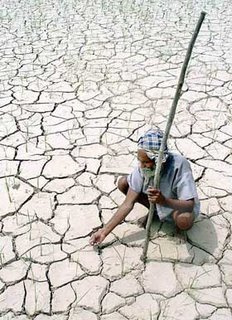To:
Shri
Prakash Javadekar,
3rd February, 2016
Minister
for Environment, Forests & Climate Change,
Government
of India
Dear
Shri Prakash Javadekar Ji,
Sub: Strong objection against, and deep concerns with regard to
the secretive and hurried processing of GM mustard “environmental release”
application and possible approval of GM mustard
From the media reports it has been brought to our notice that Ministry of Environment, Forests and Climate Change is convening a meeting on
While
the genetic modification is ostensibly to increase productivity by creating a
hybrid, it is worth noting that non-GM hybrids exist in the market; more
importantly, other agronomy based practices exist to improve yields significantly
and there is no need to resort to such a risky and irreversible option. Therefore,
without having a need for such a transgenic option, we are trying to unleash an
unaccountable and irreversible experiment on the country.
The
use of a herbicide tolerant gene as a marker potentially allows for the back
door entry of herbicide tolerant crops in India India
The
Parliamentary Standing Committee and the Supreme Court-appointed TEC had
specified that no genetic modification should be allowed in the case of such
plants, to prevent contamination of the germplasm and gene pool.
Introduction of GM mustard in villages will certainly lead to contamination of
non-modified mustard varieties thereby harming the vast diversity that is our
food insurance.
One
of the most disturbing aspects of the whole process with regard to GM mustard
biosafety data, field trials and the regulatory approvals is the shroud of
secrecy around it. Orders from the Supreme Court (in relation to the PIL
related to GM crops) have clearly mandated that all biosafety data of GM crops
should be pro-actively shared in the public domain. However, the regulatory
process, instead of becoming more transparent, has been made completely opaque
with biosafety data being refused even in response to RTI queries. This raises
the important question about the regulatory process itself, about its
integrity, and in is solely seen serving the interest of global seed and
chemical manufacturers at expense of Indian ecology and farmers.
It
is also seen that the Supreme Court has just heard a Contempt Petition for the
regulators violating some basic Orders of the court in the past related to
scientific, bio-safe, transparent and independent regulation, and notices have
been served to the Government regulators on the same. At such a juncture, it is
indeed a matter of concern that the GEAC meeting is being scheduled on the 5th
of February, ignoring all developments.
NDA
government has repeatedly asserted “Transparency & Accountability” as major
“pivots” of its governance policy and these are ever seen to be grossly
violated in letter and spirit. Not expanding the importance of “Contempt”,
which the government seems to be taking casually and ignoring at its own peril,
the permeation of vested interests driving these decisions and abject
capitulation by the government to “serve” this interest is visibly alarming.
The NDA regime is continuously seen making decisions which are Anti Farmer,
Anti Poor and Anti Ecology and Environment and resultantly the image of
government and the tall promises which seemingly follow, squarely appear
shallow with no intention of holding them to see through the actual intent.
The
Center’s insistence in pushing this decision shall be in defiance of wishes of
states which don’t want GMO’s in general and this GM Mustard in particular.
This also is a breach upon the “basic features” of the “Federal Structure” and
is a departure from constitutional probity which this government has come to be
identified with through several “unilateral” decisions, as was seen during the
Land Acquisition Ordinance, sans applying any merit of wisdom on such sensitive
issues.
We
also would like to remind you that your party in your election manifesto
mentioned that “GMO would not be allowed
unless there has been a strenuous evaluation on the aspects which could be
detrimental to the farmers, the community and more specifically to the
environment and the ecology”. Needless to mention that the processing of
this GM mustard application, conducted in such secrecy is neither responsible to science
nor responsive to society.
Please
also recall that the Prime Minister very recently announced in Sikkim
Given
all the above, we urge you to kindly intervene in this matter, and ensure that
the regulators do not proceed on this GM mustard commercialization application,
especially given that lasting alternatives exist, for improving mustard yields.
Thank
you,
KN
Govindacharya
Abhishek
Joshi
New Delhi
K.N.Govindacharya
Twitter : @kgovindacharya
Abhishek
Joshi
Twitter : @abhjoshi
